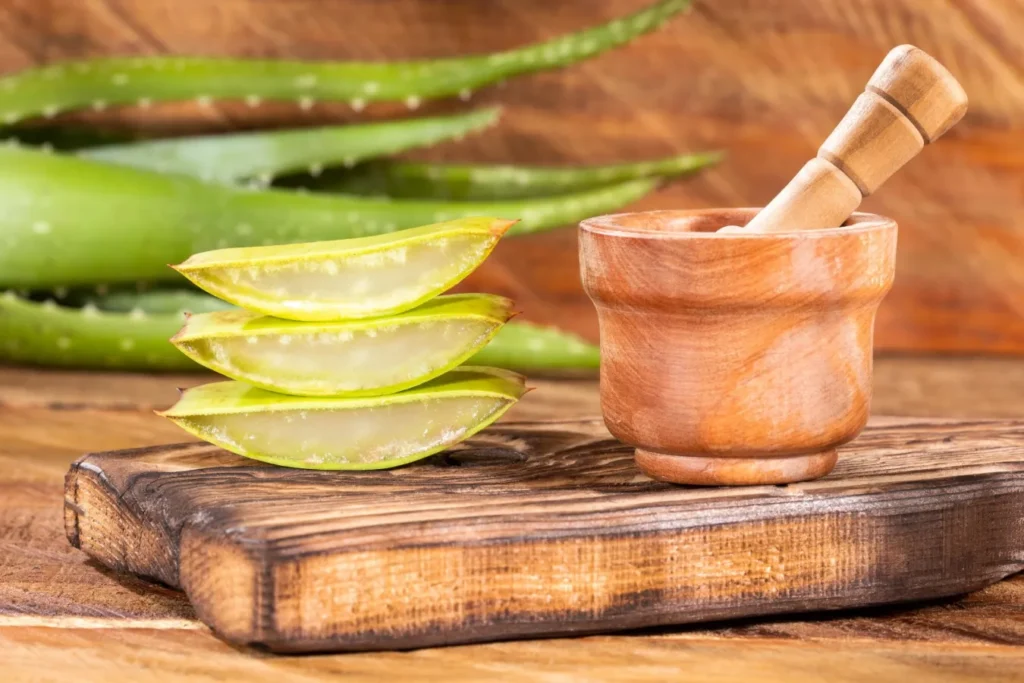Aloe vera is a species of succulent plant that belongs to the Asphodelaceae family. Its popularity is due to its various medicinal properties that help treat respiratory diseases, minor burns, and scars. It is also beneficial for the health of hair and skin.
This plant is grown in subtropical climates, although it is found in several countries as it is very versatile and does not require much care. Its leaves are thick and fleshy, approximately 50 centimeters long, and are glaucous green.
“Its flowers, in the form of small yellow or orange trumpets, appear along a floral stem. Aloe vera is native to Africa,” says Jean-Pierre Nicolas in the Manual of Medicinal Plants of the Highlands for Family Use. The part of this plant that is used is the gel found inside its fleshy leaves, also called “pences.”
What is aloe vera used for?
“In recent years, advances have been made that have allowed us to understand part of the mechanism of action of Aloe in the prevention and/or relief of diseases and to identify some of the compounds that show effects on health,” reads the text Beneficial effects of aloe on health, from the magazine Vertientes.
Some of its beneficial effects have been found to be related to its antioxidant, anti-inflammatory, and antibacterial properties. In addition, it contains vitamins A, E, B1, and B2, as well as calcium, iron, and potassium.
According to María José Ovalle, a natural medicine therapist and holistic health coach, and the naturopath and acupuncturist, Estuardo Mendoza, the benefits of aloe vera include:
- Treat respiratory diseases: due to its respiratory properties, it helps reduce inflammation and decongest the bronchi.
- Reduces menstrual cramps: thanks to the antioxidants and anti-inflammatories it contains. The idea is to include the plant in our diet, such as in natural smoothies.
- Relieves burns: One of the most popular uses is for minor burns. The gel should be applied to the wound for several days.
- Improves digestion: when added to smoothies or natural juices. It works as a laxative and fights gastrointestinal fungi.
- Prevents degenerative diseases, such as cancer and diabetes. Ideally, it should be consumed regularly.
- Helps healing: Since it is antiseptic, anti-inflammatory, and antibacterial, it is useful for skin health and helps healing.
- Improves asthma symptoms
Internal use of the plant, that is, when it is consumed, should be under supervision. Its prolonged use is not recommended and the dose should not exceed 50 grams of fresh leaves per day.
Aloe Vera for hair
In addition to the benefits mentioned above, aloe vera helps maintain healthy hair, especially if it is weak, dry, or damaged.
Aloe vera acts as a natural exfoliant, absorbing the oil produced on the scalp. It provides hydration, and antioxidants and strengthens the scalp. It also prevents hair loss.
This plant can also be used as a natural conditioner, due to the essential nutrients it contains. Its use is similar to natural keratin in hair. In this way, it also provides shine and, due to the health it generates, makes hair grow faster.
Constant application of aloe vera would prevent the appearance of dandruff, due to its antibacterial properties.
Aloe Vera for the Face
As mentioned above, aloe vera gel contains antibacterial and anti-inflammatory effects, which is why it is used to regenerate the skin, especially in cases of acne, as it reduces swelling.
These properties also prevent facial wrinkles, as they stimulate the collagen fibers in the skin. This would be beneficial for the health of this organ, reducing the signs of aging.
When applied consistently to the face, it combats spots that appear due to the sun or hormonal changes; as well as generating deep cleansing and hydration, improving the appearance of the skin. For this reason, it is used in effective products for dry skin.

